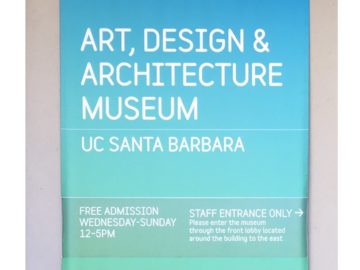In Appreciation of the Shredder
BY CHAD SYKES
We were so confident. We knew we had a great idea for engaging Westmont College students with the city of Santa Barbara (our class project for the day), and we couldn’t wait to share it with the class. Our little cohort turned in our written proposal, a role reversal program that sent Westmont students to the homes of the college’s custodial staff to volunteer as an appreciative way of giving back, and we humbly awaited our inevitable praise.
And you know what our professor did? Without even reading the proposals, she whipped a paper shredder from nowhere, and proceeded to slowly and deliberately decimate our beautiful ideas.
After our class recovered from the initial shock, Dr. Winslow reminded us of the other part of the assignment that we had forgot about. Not only were we supposed to come up with the best idea for engaging Westmont students with Santa Barbara, but our worst idea as well.
We should have known by then to expect anything while taking classes at Westmont’s Center for Social Entrepreneurship, but the second part of our assignment came at a bit of a shock: trade our worst ideas with other cohorts, and turn them into a new best idea.
The ideas couldn’t be that bad though, right? Well, as we attempted to figure out how to turn an idea for fire-and-brimstone street evangelism into a good idea, we knew that going from worst to first would take some extra effort.
We decided to completely ditch the fire-and-brimstone portion of the idea, and instead focused on the strengths that Westmont could offer—a wealth of professors who had the knowledge, and a bunch of undergraduate students passionate about learning and spreading awareness. Our class came up with the idea of educational campaigns to spread awareness about hot topics that Santa Barbarans would care about. One student made the concept his final One Big Idea project, spreading awareness about the 100 year anniversary of the Armenian Genocide. Back on campus apart from our program, professors organized a Teach-In about the Syrian Refugee crisis. Not too bad for the worst idea ever.
What we learned after the class experiment had taken place was that Dr. Winslow was not in fact a cruel professor who wanted to literally shred our hopes and dreams of becoming social entrepreneurs, but instead a wise sage who wanted to help us learn a couple essential lessons.
Lesson One: Your first idea often isn’t the best idea. Social Entrepreneurs severely limit themselves if they only consider their first and “best” idea. We close ourselves off to the possibility for growth and adaptation, guaranteeing that our best idea is really only as good as it is going to get. Netflix used to share television shows and movies via mail-orders from customers. Seeing that their business model was heading the way of Blockbuster, Netflix completely changed their gameplan. Had they simply limited themselves to their first great idea, we most likely would not be living in a Netflix streaming world.
Lesson Two: There is no such thing as a useless idea. Sure, there can be bad ideas, and awful ideas, and please-stop-talking-to-me ideas, but no idea is completely useless. In our class example, the idea to get Westmont students to evangelize on Santa Barbara street corners, warning passing people of their impending fiery doom was a bad idea. But we were able to extract some good from it. The broader concepts of spreading awareness, prioritizing what was important, and moving into the community all had value. Had Dr. Winslow shredded those ideas rather than our “best” ones, we would have missed out on some great ideas.
Activities like this one are fairly common at Westmont’s Center for Social Entrepreneurship. As part of Westmont’s first off-campus semester in Santa Barbara, students are taught to learn through action, to engage locally, and to live faithfully. Getting our work shredded in front of us was definitely a first, but it was not out of the ordinary.
We were able to apply the lessons learned through this assignment in our capstone project, our One Big Idea. After learning the fundamental principles for solving problems, fostering innovation, and creating social change, we came up with our own action plans for bring about positive social change. There were ideas for an Armenian Genocide awareness program, an ethical online marketplace, a coffee shop that employs vulnerable youth, and a rehabilitative theater troupe.
Each and every one of these ideas has undergone the process of refinement, and will continue to do so. Our first ideas look only vaguely similar to the proposals we have now, and will probably look even less so as we go on. Ideas that once seemed ridiculous have produced vital insight to a particular part of the larger One Big Idea, and we will continue to toss around bad ideas in hopes that we can glean the good from them.
Social entrepreneurs can’t be too stubborn to not change their best ideas, or too closed off to ignore what may seem ridiculous at first. Adaptability and creativity are the name of the game in social entrepreneurship, and that’s why I’ve come to appreciate a good paper shredder every now and then.




